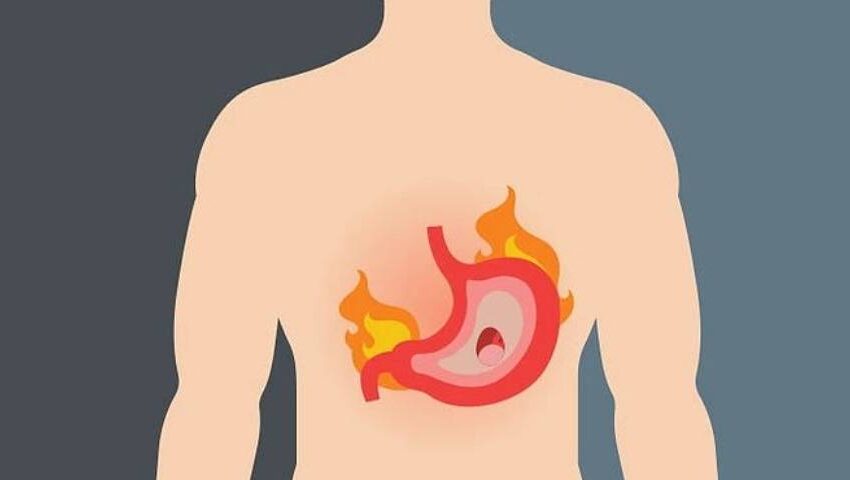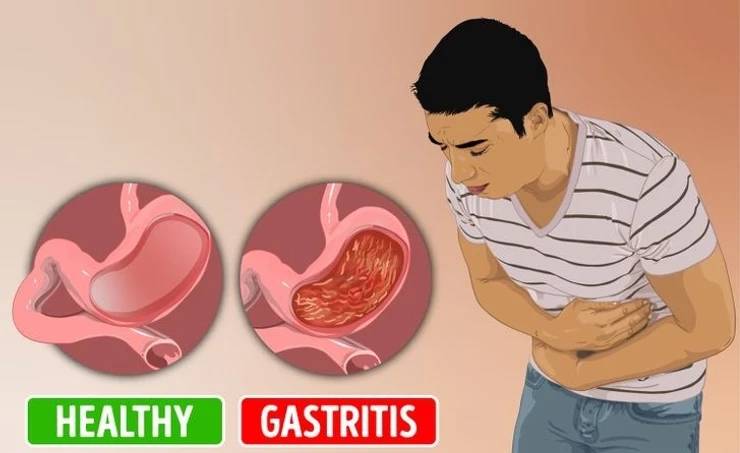
- 23/02/2021
- Dr. Samrat Jankar
- 0 Comments
- Blog
Gastritis- Everything you need to know
Weakness in your stomach lining lets digestive juices damage and inflame it, which causes gastritis. Having a thin and damaged stomach lining increases your risk for gastritis.
Gastrointestinal bacterial infection can cause gastritis, as well. The most common bacterial infection that causes gastritis is Helicobacter pylori. It is a bacterium that infects the lining of your stomach.
Gastritis, or inflammation of the stomach lining, can be caused by a variety of factors. Find out how to get rid of the unpleasant symptoms.
The infection is usually passed on from person to person. However, it can also be transmitted through contaminated water or food.
Certain activities and conditions may increase your risk of developing gastritis. Other risk factors include:
- Extreme alcohol consumption
- Continues use of nonsteroidal anti-inflammatory drugs (NSAIDs) like ibuprofen and aspirin
- Cocaine use
- Age, as the stomach lining thins with age
- Use of tobacco
Other less common risk factors include:
- Stress due to severe injury, illness, or surgery
- Autoimmune disorders
- Digestive disorders like Crohn’s disease
- Viral infections
What are the symptoms of gastritis?

Gastritis does not cause noticeable symptoms in most people. The most common symptoms are:
- Nausea
- Vomiting
- A feeling of fullness in the upper abdomen, especially after eating
- Indigestion
If you have erosive gastritis, you can experience different symptoms, including:
- Black, tarry stool
- Vomiting blood or material that appears like coffee grounds
How is gastritis diagnosed?
Your gastroenterologist will conduct a physical exam, ask about your symptoms and family history. They may also suggest a breath, blood, or stool test to check for H. pylori.
To find out what is going on inside you, your doctor may perform an endoscopy to check for inflammation. An endoscopy involves using a long tube that has a camera lens on the top.
During the procedure, your specialist will insert the tube to investigate the esophagus and stomach. Your specialist may also take a small sample of the stomach lining if they notice anything unusual during the examination.
Your doctor may also perform X-rays of your digestive tract after you swallow a barium solution. It helps distinguish the areas of concern.
How is gastritis treated?
Gastritis treatment depends on the cause of the condition. If you have gastritis because of NSAIDs or any other drugs, avoiding them may be enough to relieve your symptoms.
Gastritis caused by H. pylori is routinely treated with antibiotics that kill the bacteria. Besides antibiotics, several other types of medicines are used to treat gastritis:
Proton pump inhibitors
Acid reducing medications
These are medications that minimize the amount of acid your stomach produces. They lower the amount of acid that is released into your digestive tract. Moreover, these medications relieve the pain and allow your stomach lining to heal.
Antacids
Your doctor may suggest that you use antacids for quick relief of gastritis pain. These medicines can neutralize the acid in your stomach.
Some antacids may cause constipation or diarrhea. So, consult your doctor if you experience any of these side effects.
Probiotics
Probiotics are known to help replenish digestive bacteria and heal gastric ulcers. However, there is no evidence that they have an impact on acid secretion. There are currently no guidelines suggesting the use of probiotics in ulcer management.
What are the potential complications from gastritis?
If your gastritis is left untreated, it leads to stomach bleeding along with ulcers. Some forms of gastritis increase your risk of developing stomach cancer. It occurs especially in people who have thin stomach linings.
Because of these potential complications, it is important to talk to your doctor if you experience gastritis symptoms.
What is the outlook for gastritis?
The outlook for gastritis depends on the cause. Acute gastritis usually resolves fast with treatment. H. pylori infections, for example, can be treated with one or two rounds of antibiotics.
However, sometimes treatment does not work, and gastritis may turn chronic and long-term. Consult a gastroenterologist; they can develop an effective treatment plan for you.
